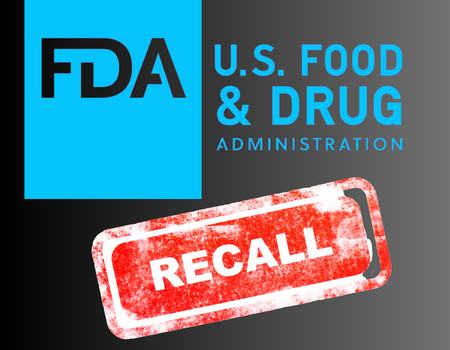The Key Elements of Being “Recall-Ready”: FDA’s Current Recommendations Related to Timely Initiation of and Responses to Recalls
Speaker: Meredith Crabtree
Speaker Designation: Quality Management Expert

Speaker: Meredith Crabtree
Speaker Designation: Quality Management Expert

We all shudder to say that dreadful “R” word. Recalls are costly and time-consuming to any organization, whether a manufacturer or distributor. Whether the facility is the initiator or required to respond. Therefore, some organizations tend to delay the initiation of a recall or fail to respond to one.
Are you prepared for a recall? Significant industrywide issues are causing large-scale public recalls, catching even the most sophisticated companies off guard. However, if you learn what the FDA looks for in a smooth recall now — as evidenced by the agency's recently released guidance on initiating voluntary recalls — you'll have a better chance of conducting a compliant operation.
A company should begin a voluntary recall by promptly informing each of its affected direct accounts about the recall and, if appropriate, issuing a press release or other public notice.
The FDA's newly issued guidance describes preparations that firms can take to become "recall ready". The FDA recently published a Guidance Document to provide clarification to the FDA’s recommendations/ expectations when it comes to Recalls, press releases, or other public notifications that could impact public health and safety.
Any FDA industry can be impacted by a recall… Pharma, Medical Devices (Human and Animal), Blood and Tissue, Cosmetics, Nutraceuticals/ Supplements, Tobacco and Alcohol industry; Additionally, Recalls impact both manufacturers and wholesalers, distributors, re-packagers, etc. Even the consumer goods industry can be impacted by a recall if there is a potential for an impact on public safety. However, this particular training is geared toward FDA requirements
A product recall may be undertaken voluntarily and at any time by manufacturers and distributors, or at the request of the FDA. The majority of product recalls are done voluntarily by companies, which may avoid more burdensome administrative procedures mandated by law (such as seizure, detention, and injunction). As a result, a company that fails to initiate a voluntary product recall or fails to carry out a requested recall may face penalties. Recently Volvo Group North America was hit with $130 million penalty over delayed recalls.
Whether you are a manufacturer or a distributor, it is important to understand FDA expectations and requirements when it comes to reporting the recall to the industry. You should also be aware of what processes you should have in place when you receive a recall notification. When a recall is needed, do you know what your responsibilities are when it comes to initiation/ notification?
This course will help you identify what internal processes should be established within your facility.
Meredith Crabtree has over 30 years of experience in regulated industries, ranging from Blood, Plasma, Tissue, Laboratory, Pharma, Medical Device, Cosmetics, Supplements, and Animal Health. This includes manufacturing, packaging, labeling, and distribution operations. Meredith owns MLKC Consulting specializing in product label reviews, 3rd party inspections, technical writing, FDA Product and Establishment registrations, and Consent Decree and Recall support. She also performs regulatory assessments and Quality training.